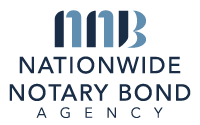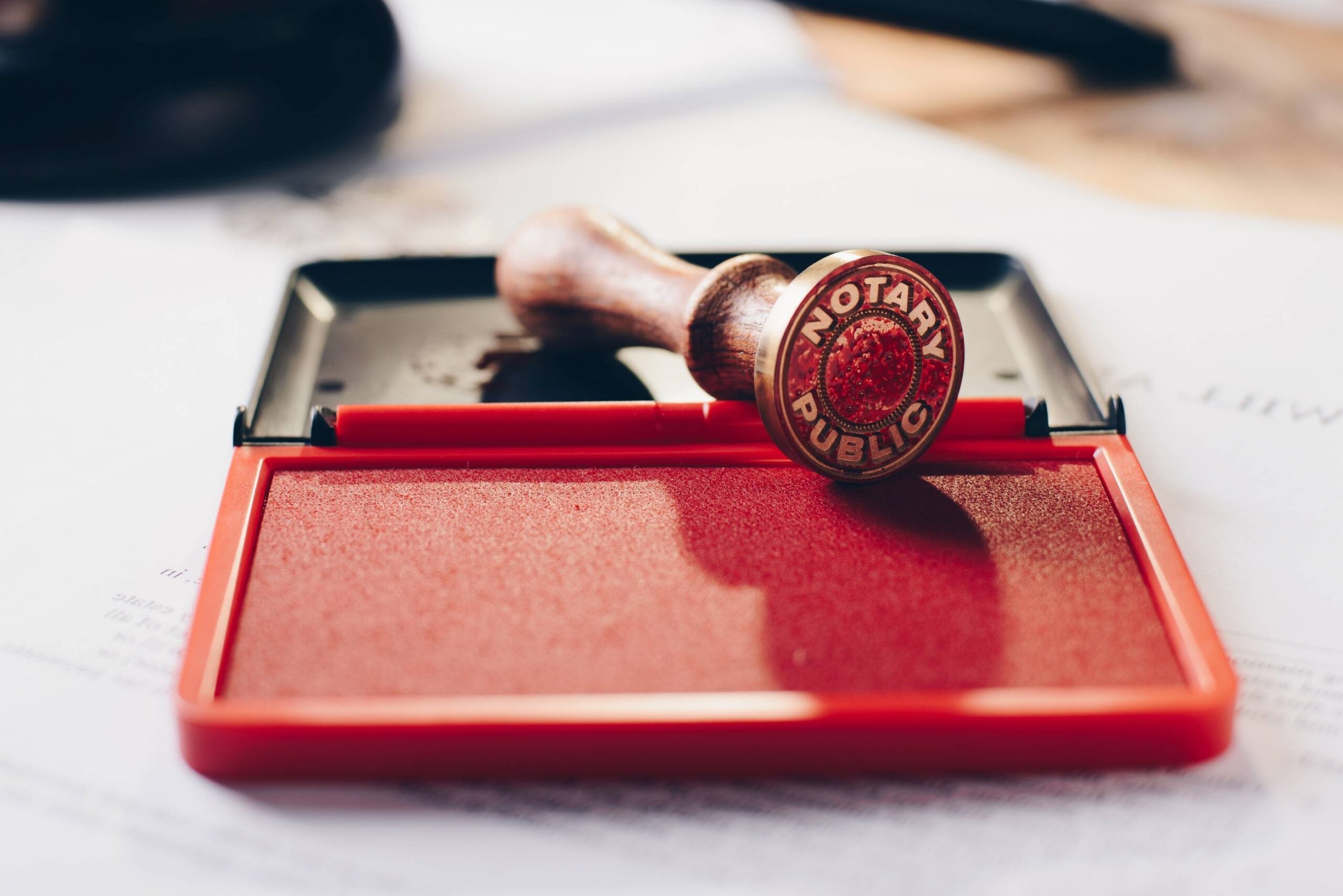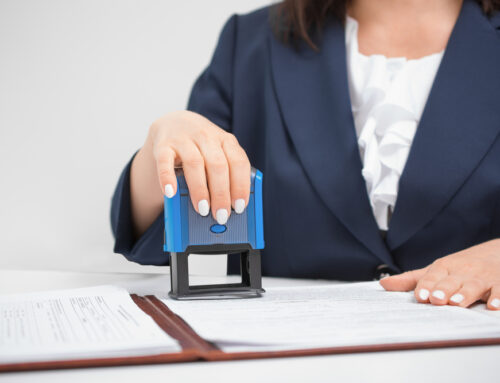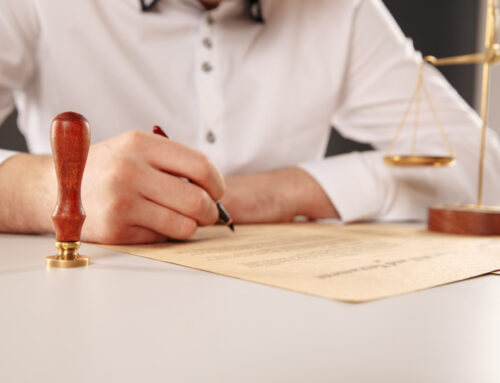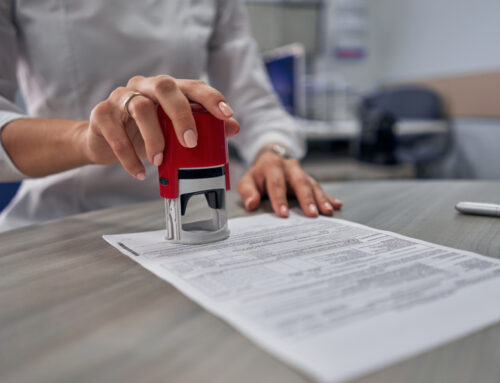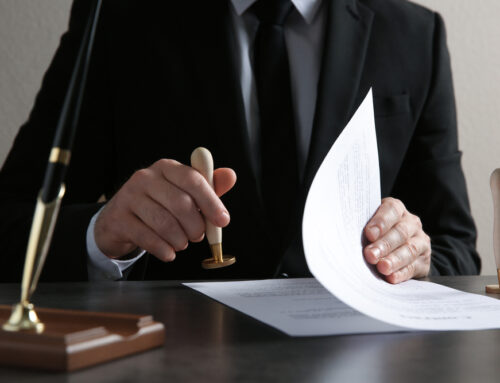When a document is signed, it can be crucial to know who signed it. This is where notarial seals come into play. Notaries have a legal and ethical obligation to properly identify every signer in a notarization. Misidentifications, mistranslations, or intentional fraud can result in serious consequences and criminal charges if the misuse of the seal is caught by law enforcement. Without proper identification, a notary cannot notarize a document.
Notaries have three ways to correctly identify a signer, each with distinct benefits and pitfalls. If you’re a notary or a business owner, the information in this article from Nationwide Notary Bond Agency will help you understand how to identify signers properly.
Personal Knowledge
Notaries can use personal knowledge to identify signers properly. If you know them personally, you can ask them for certain identifying information and compare it against their signature on the document. For added security, you can use your discretion. This is especially important when the person signing the document is a well-known public figure or when the document is legally or financially binding.
Personal knowledge is quick and easy. So, it’s excellent for busy notaries who need to move quickly through their appointments. It also reduces confusion since there’s no reliance on written identification documents that may not match up with who signed the document in person. And because it’s so easy, there’s less room for error or fraud than other methods of identifying signers.
Credible Identifying Witnesses
Someone who knows the signer well enough to attest that the person in front of them matches the signature on the document is considered a credible identifying witness. In addition, a reliable identifying witness attests to the signer’s identity at the time of signing. This can be a family member, friend, or coworker.
The notary should not choose an identifying witness who may have a personal bias for or against the signer. If multiple people are witnessing the signing, they should come up with their identifying witness.
You can’t choose just anyone as an identifying witness. You need someone with knowledge of your signer’s identity and signature to serve as an identifying witness. Ideally, that person will have seen both the signer and their signature before to verify that they’ve been signing documents for them for a long time. There are three ways that you can find a credible identifying witness:
“¢ Ask the client for someone who has known them for at least two years and preferably longer
“¢ Ask if there’s anyone else who works at the same place as them or used to work there who might be able to serve as an identifying witness
“¢ Ask if there’s anyone else who has worked with them in any capacity, such as volunteers or interns
Identification Cards
Notaries can use identification cards and other notary supplies to verify the identity of a signer. A government agency should issue the card, including the name, address, and date of birth of the person who held the card when it was issued. The notary should also check that the picture on the identification matches that person’s face.
The following are ways in which notaries can properly identify signers:
1. Ask for two forms of identification
2. Check to see if they match their signatures
3. Check their names against their signatures
The Purpose of Notarization Is to Help Prevent Fraud
Notarization is a process that allows you to verify the authenticity of a document. It’s a way to help prevent fraud, and it’s also used to sign off on important documents. Notaries can be any person the state has appointed, but they must meet specific requirements.
To become a notary public in the United States, you must pass an exam and take an oath of office. You’ll also need to pay an application fee and file paperwork with your local government office. Once certified as a notary public, you can perform official acts such as witnessing signatures on documents and administering oaths.
A notary public’s role is similar in many countries around the world. Their governments authorize them to perform certain legal or financial transaction tasks, such as witnessing signatures on documents or certifying copies of official documents such as birth certificates or marriage certificates.
Who Needs Notary Services?
Notaries are professionals who verify the identity of signers, sign documents on their behalf and ensure that they fully understand the contents of the documents they are signing. A notary is often the first point of contact people have with a lawyer or financial institution and can play a key role in resolving disputes over a legal document.
Most people will require notary services at some point in their lives, whether signing a lease for an apartment rental or setting up a trust fund for their children. Some professions require frequent use of notary services, such as real estate agents and financial planners.
Notaries are often called upon to perform various important tasks, including helping people with their legal documents like wills, trusts, and other estate planning documents. They also help businesspeople ensure that they are operating within the law. Companies that need notary services to include:
“¢ Small businesses
“¢ Real estate agents
“¢ Landlords and tenants
“¢ Land developers and contractors
Conclusion
Because the laws concerning notarizations are more complex than simply matching a photo and signature, you must know how to identify signers properly. This list above needs to be more comprehensive, but these are the basic rules you should always follow to ensure that your notarial acts are legal and binding.
Many legal gray areas still exist when identifying notaries and signers. So, consult your state’s laws on the matter if you have any doubts about what identification procedures you should follow for your notarizations. Nationwide Notary Bond Agency is a licensed and bonded notary agency that can help you become a notary, renew as a notary, and even provide training. Our goal is to ensure our clients have the necessary resources to succeed in notarial services. Contact us today!
